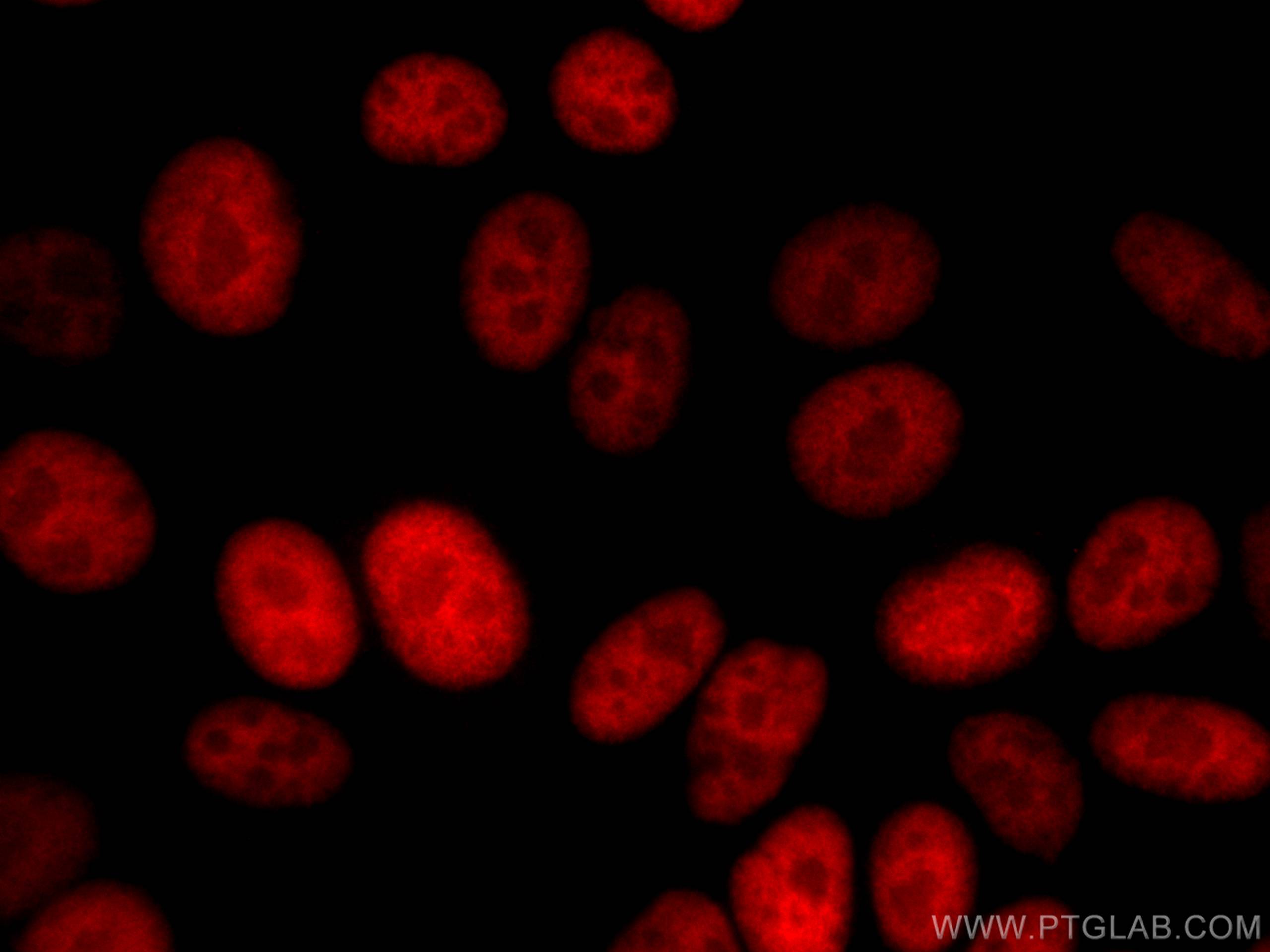Anticorps Monoclonal anti-Transketolase
Transketolase Monoclonal Antibody for IF
Hôte / Isotype
Mouse / IgG2b
Réactivité testée
Humain
Applications
IF
Conjugaison
CoraLite®594 Fluorescent Dye
CloneNo.
3E2F3
N° de cat : CL594-66016
Synonymes
Galerie de données de validation
Applications testées
| Résultats positifs en IF | cellules HepG2, |
Dilution recommandée
| Application | Dilution |
|---|---|
| Immunofluorescence (IF) | IF : 1:50-1:500 |
| It is recommended that this reagent should be titrated in each testing system to obtain optimal results. | |
| Sample-dependent, check data in validation data gallery | |
Informations sur le produit
CL594-66016 cible Transketolase dans les applications de IF et montre une réactivité avec des échantillons Humain
| Réactivité | Humain |
| Hôte / Isotype | Mouse / IgG2b |
| Clonalité | Monoclonal |
| Type | Anticorps |
| Immunogène | Transketolase Protéine recombinante Ag16779 |
| Nom complet | transketolase |
| Masse moléculaire calculée | 68 kDa |
| Numéro d’acquisition GenBank | BC009970 |
| Symbole du gène | TKT |
| Identification du gène (NCBI) | 7086 |
| Conjugaison | CoraLite®594 Fluorescent Dye |
| Excitation/Emission maxima wavelengths | 588 nm / 604 nm |
| Forme | Liquide |
| Méthode de purification | Purification par protéine A |
| Tampon de stockage | PBS avec glycérol à 50 %, Proclin300 à 0,05 % et BSA à 0,5 %, pH 7,3. |
| Conditions de stockage | Stocker à -20 °C. Éviter toute exposition à la lumière. Stable pendant un an après l'expédition. L'aliquotage n'est pas nécessaire pour le stockage à -20oC Les 20ul contiennent 0,1% de BSA. |
Informations générales
Transketolase is a key pentose phosphate shunt enzyme that plays an important role in the production of reducing equivalents and pentose sugars. Decreased activity of transketolase has been found in patients with Alzheimer's disease and thiamine deficiency. In addition, as an important biocatalyst in stereo-specific carbon-carbon bond synthesis, transketolase has been widely used in industry to produce aromatic products.
Protocole
| Product Specific Protocols | |
|---|---|
| IF protocol for CL594 Transketolase antibody CL594-66016 | Download protocol |
| Standard Protocols | |
|---|---|
| Click here to view our Standard Protocols |


